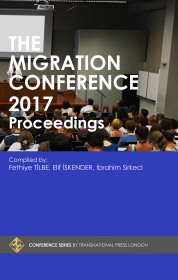From “Haponesa” to “Issei”: Ethnicized Identities of Okinawan War Brides in Post-War Philippines
From “Haponesa” to “Issei”: Ethnicized Identities of Okinawan War Brides in Post-War Philippines
Author(s): Johanna Zulueta
Subject(s): Gender Studies, Military history, Recent History (1900 till today), Cultural Anthropology / Ethnology, Migration Studies, Identity of Collectives
Published by: Transnational Press London
Keywords: Philippines; Post-war; Okinawan; war brides; identity; ethnicity;
Summary/Abstract: This paper looks at these so-called “war brides” (Sensou hanayome) in the post-war Philippines, and their experiences upon migration to the Philippines in the 1950s to the 1960s. More specifically, I examine how ethnicity has become stigmatized in Philippine society of that time due mainly to wartime experiences. I also explore their how they lived their lives in varied degrees of discrimination, inclusion and exclusion. I particularly use the ascribed ethnic marker “Haponesa” or Japanese woman, in the Filipino vernacular, to illustrate how ethnicity has been stigmatized. I utilize life stories of those women who lived decades of their lives in the Philippines. While several of them choose to go back to Okinawa, many of them made the Philippines their home. Semi-structured interviews were done in 2009 and 2012, both in Okinawa and in the Philippines. I also use data I gathered in late 2011 to 2013, when I was doing on-and-off fieldwork in Okinawa.
Book: TMC2017 Conference Proceedings
- Page Range: 602-606
- Page Count: 5
- Publication Year: 2017
- Language: English
- Content File-PDF

